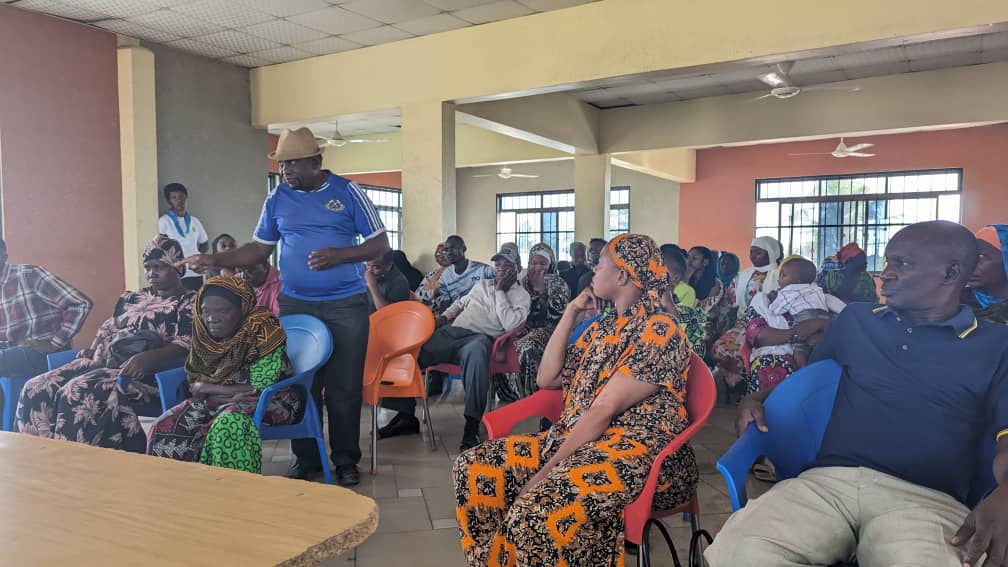Contact Info
- 6th Floor, I & M Building 2nd Ngong Avenue, Upper Hill
- +254 (0)20 2985000; +254 (0)729 111031 / +254 (0)731 000065
- info@pasgr.org
- Office Hrs: Today 9.00am to 6.00pm
The government of Tanzania has made several legal and institutional frameworks to ensure fair water governance practices in water resources management, water supply, and sanitation. Notably, the Water Resources Management Act of 2009 and Environment Management Act of 2004 stipulate the protection of water resources through principles such as public participation and polluter pay.
Despite such efforts, vulnerable communities still suffer from water pollution, inadequate access to safe water, and lack of improved sanitation services. Particularly, communities in the Vingunguti ward in Dar es Salaam City comprises low-income households and lack access to sanitation services and reliable water supply. Consequently, due to unreliable sanitation services such as wastewater and solid waste collection, communities have turned the water of the Msimbazi River into dumping grounds.
Shahidi wa Maji, a local Tanzanian NGO, has been working with communities facing difficult water problems by implementing projects anchored on social accountability mechanisms. Particularly, the Accountability for Water Research Programme is implemented to improve water governance in Tanzania through evidence-based mechanisms coupled with action research to activate community voice and enhance uptake by the government.
In August 2024, the Shahidi wa Maji team visited communities in Majengo and Butiama neighbourhoods in the Vingunguti ward to understand difficult water problems and pinpoint community-based solutions that could potentially address such problems. At least 50 community members attended the meeting and shared practical solutions to water problems.

Three key lessons were drawn from the meeting: social problems require context-based solutions that reflect the communities’ social, economic, and cultural environments. Such solutions should come from community members. During the meeting, community members shared practical solutions to their contexts. Such solutions include addressing the problem of random dumping of solid wastes by using locally based solid waste collectors within the community and providing affordable services.
Secondly, addressing water problems requires robust social accountability monitoring mechanisms that allow citizens to monitor the performance of duty bearers in water service provision. One of the citizens said,
“We want feedback about the status of water supply services. Water authority promised to get us water, but we do not see water. We live in the city, but we are treated as outcasts. In other areas, such as Tabata, where middle-class people live, they get water daily. We want to know why Vingunguti people lack water, but Tabata has daily water supply, yet we are all Tanzanians and are all served by one water authority”.
The third lesson drawn from the meeting is that co-creation is at the heart of effective social accountability initiatives. Citizens expressed their interest in working with Shahidi wa Maji to ensure government authorities respond. One of the citizens, who was a neighbourhood leader, said,
“We want to work with Shahidi wa Maji to get the water supply and sanitation authority to respond to our problems. We do not get water on time. Water pipes are bursting, but the authorities do not fix them promptly. We hope to work with you to find answers”.

A4EA AAU advanced research design African universities agriculture Applied Quantitative Methods APSP ARD CABE call for applications cash transfers COVID-19 employment energy EOI Featured higher education IDS INCLUDE Job opportunity LEAP Africa MMRC MRPP opportunities opportunity PAMOJA TRUST partnerships PASGR PDT pedagogy PedaL press release professional development and training professional training public policy Research research methods scholarships social protection Social sciences University of Ibadan University of Pretoria utafiti sera vacancy Youth employment

6th Floor, I & M Building
2nd Ngong Avenue, Upper Hill
P.O. Box 76418-00508
Nairobi, Kenya
Email: info@pasgr.org
Tel: +254 (0)20 2985000;
+254 (0)729 111031 / +254 (0)731 000065
Legal counsel provided by Hurwit & Associates and Muthoga Gaturu & Co. Advocates